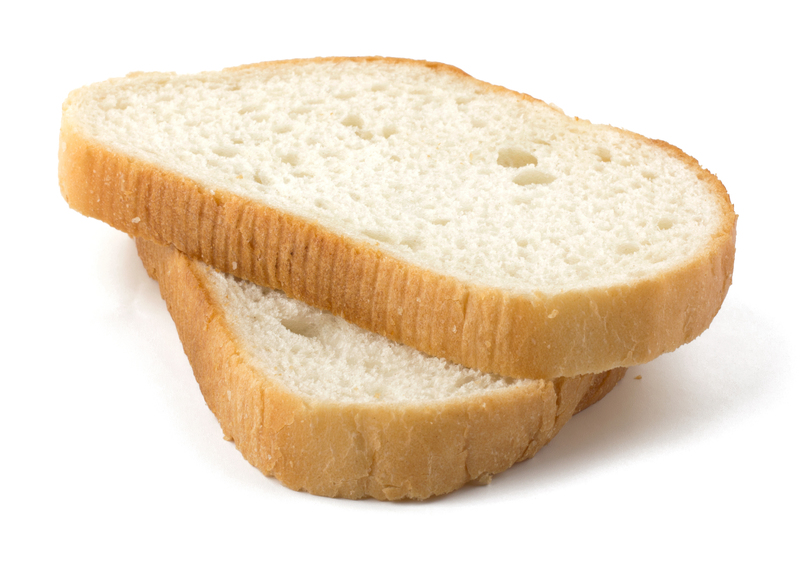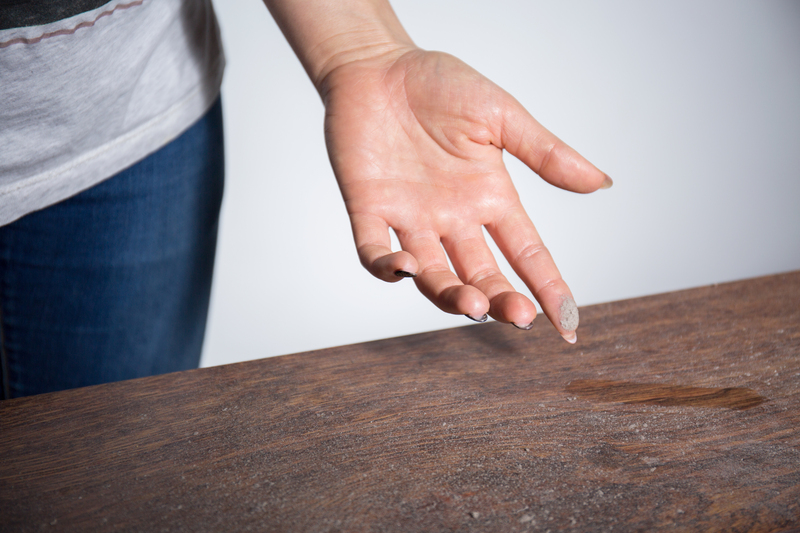Say Hello to a Fresh Home Environment Free of Pet Odors
Posted on 25/06/2025

Pets enrich our lives in countless ways, but sometimes our noses pay the price! Whether you share your home with energetic dogs, playful cats, or feathery companions, pet odors can linger and affect the atmosphere in your living space. If you want to transform your home into a haven of freshness without compromising your love for animals, you're in the right place. Discover effective, practical steps to maintain a pet odor free home and finally say goodbye to stubborn smells.
Why Do Pets Cause Odors?
It's no secret: our furry and feathery friends are adorable but can bring in unwanted smells. Understanding the source of pet odors is the first step to eliminating them. Here's why they occur:
- Natural body oils and sweat produced by your pet can permeate fabrics.
- Accidents - sometimes pets urinate or defecate outside of designated areas.
- Saliva and dander can soak into carpets and upholstery.
- Litter box and cage smells from poor upkeep or inadequate ventilation.
- Outdoor scents brought inside on paws and fur.
- Wet dog smell after baths, walks, or rainy day adventures.
The good news? You're not powerless-- pet smells can be tamed with the right strategies!
Routine Cleaning Matters
Routine, thorough cleaning is the cornerstone of a fresh and inviting home. To keep your pet friendly home odor-free, implement these cleaning habits:
Vacuuming & Sweeping
- Vacuum carpets, rugs, and upholstery at least twice a week.
- Consider a vacuum with a HEPA filter and pet hair attachments.
- Sweep and mop hard floors regularly to avoid grime build-up.
Launder Fabrics
- Wash pet bedding, blankets, and covers weekly.
- Launder curtains and pillow covers every few months.
- Use unscented or pet-safe detergents.
Deodorize Surfaces
- Use enzymatic cleaners on urine stains and accidents for deep odor removal.
- Wipe down pet "hot-spots," like crate interiors and feeding areas, daily.
- Don't forget baseboards and corners--fur and dander accumulate here!
Focus on Pet Grooming
Grooming is essential for more than just good looks--it's crucial for keeping your home fresh!
- Bathe your pet as recommended for their species and breed. Overbathing can dry skin and worsen odors, while underbathing lets grime linger.
- Brush fur daily to remove loose hair, dirt, and dander.
- Trim nails and fur between paw pads, where dirt accumulates.
- Keep ears clean and dry to prevent yeast or bacterial odors.
- Routine dental care - bad breath is a form of pet odor too!
Don't hesitate to ask your vet or groomer for recommendations specific to your pet's needs.
Master The Art of the Litter Box
Cat owners know: litter box maintenance is key to a home free of feline-related smells. Here's how to keep things under control:
- Scoop waste at least once a day (twice is better!).
- Replace litter and clean the entire box weekly.
- Consider high-quality, odor-controlling litter--avoid harsh chemical scents.
- Place the litter box in a well-ventilated, low-traffic area away from main living spaces.
- Provide one box per cat, plus an extra, to reduce overcrowding and stress-induced accidents.
For multi-pet households, keep dog food and water bowls away from litter areas to prevent cross-contamination of smells.
Clean Pet Bedding and Toys Regularly
Pet beds, blankets, and favorite playthings can trap odors even when you keep floors spotless.
- Wash all bedding and washable toys weekly in hot water with a mild, enzyme-based detergent.
- Disinfect hard toys and pet dishes regularly using vinegar and hot water.
- Rotate old, worn bedding and toys out to prevent them from becoming a source of musty, persistent pet odors.
Quick tip: Place a dryer sheet (pet-safe and unscented!) in your pet's bedding storage bin for a pleasant, lingering freshness.
Ventilation and Fresh Air Strategies
Proper airflow is your powerful ally in the battle against indoor pet odors:
- Open windows and doors frequently to let fresh air circulate.
- Use ceiling fans, exhaust fans and portable fans to keep air moving and dilute smells.
- Check and replace HVAC filters every 1-2 months; consider filters designed specifically for pet homes.
Tip: Install a door draft stopper on rooms where pets spend time to prevent odors from spreading throughout the house.
Best Air Purifiers for Pet Odor Control
Investing in the right air purifier can make a night-and-day difference for pet owners:
- Choose models with HEPA and activated carbon filters, which trap both dander and odor molecules.
- Place air purifiers in rooms where pets spend the most time or near the litter box or crate.
- Look for energy-efficient models with quiet operation and easy filter replacement.
Popular options include Levoit, Honeywell, and Winix. For open-plan homes, consider a whole-house air purifier for comprehensive coverage.
Natural Ways to Neutralize Pet Smells
If you prefer to avoid chemicals, the following natural pet odor solutions can work wonders:
- Baking soda - Sprinkle liberally on carpets and upholstery, let sit for 30 minutes, then vacuum.
- White vinegar - Mix with equal parts water in a spray bottle and use to wipe down hard surfaces.
- Lemon juice - Fresh lemon diluted in water is excellent for neutralizing kitchen or crate odors.
- Activated charcoal or bamboo charcoal bags - Place in rooms, closets, and litter areas for passive odor absorption.
- Houseplants - Certain varieties (boston fern, spider plant, peace lily) naturally help filter air toxins and mild odors.
Remember: Always test natural solutions in an inconspicuous spot first to ensure colorfastness on fabrics and floors!
DIY Pet Odor Removers
If you love do-it-yourself solutions, try these homemade pet odor removers for a chemical-free clean-up:
- Enzyme Spray: Mix 1 cup hydrogen peroxide, 1 tsp dish soap, and 1 tbsp baking soda. Spray on stains, let sit 15 minutes, blot, and repeat if necessary.
- Deodorizing Carpet Sprinkle: Combine 2 cups baking soda with 20 drops lavender or lemon essential oil. Shake over carpets, leave overnight, vacuum thoroughly.
- Quick Air Freshener: Fill a spray bottle with water, add 2 tbsp vodka or rubbing alcohol and a few drops of essential oil. Mist around pet areas for instant refreshment.
Always avoid essential oils that are toxic to pets, such as tea tree, eucalyptus, and pine.
When to Seek Professional Help
Sometimes, pet odors persist despite your best efforts. If deep, chronic smells remain, it may be time to call in the pros:
- Carpet and upholstery cleaning specialists can use industrial-grade enzymatic treatments.
- Duct cleaning services help if smells are trapped in your home's ventilation system.
- Pet behaviorists or veterinarians can address issues if repeated accidents or behavioral changes are causing increased odors.
Don't hesitate to invest in professional assistance; it can transform your home environment and preserve your carpet, furniture, and peace of mind!
Conclusion: Fresh Home, Happy Pets
Embracing a pet odor free environment doesn't mean sacrificing cuddles, comfort, or the joys of pet companionship. With consistent cleaning, smart odor-neutralizing practices, and a little extra attention to detail, you can create a welcoming home that impresses visitors and keeps your senses happy. Remember, a fresh home is a healthier place for both you and your beloved animals.
Say hello to a new standard of cleanliness. Welcome every guest, fur and human alike, to a truly fresh environment, and enjoy peace of mind knowing your home is free of unwanted pet odors.
Frequently Asked Questions
- What's the best way to remove persistent pet urine smell from carpets?
Use an enzymatic cleaner specifically designed for pet stains and let it soak according to the manufacturer's instructions. For old, stubborn odors, repeat applications may be needed, and professional carpet cleaning can provide a deeper refresh. - Are plug-in air fresheners safe for pets?
Many commercial air fresheners contain chemicals that can irritate pets' sensitive respiratory systems. Stick to natural alternatives and ensure good ventilation instead. - How often should pet beds be washed?
At least weekly. If your pets shed heavily or spend a lot of time outdoors, consider bi-weekly washes to reduce built-up odors.
Ready to enjoy a home that smells as lovely as it looks? Put these tips into action and delight in a truly fresh home environment--free of pet odors--every single day!






